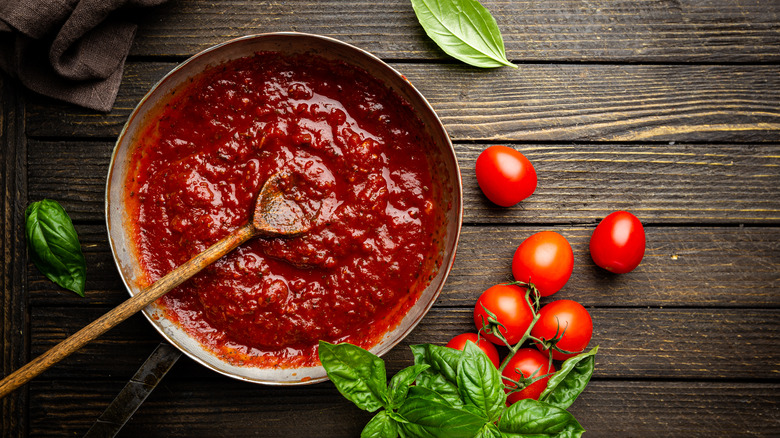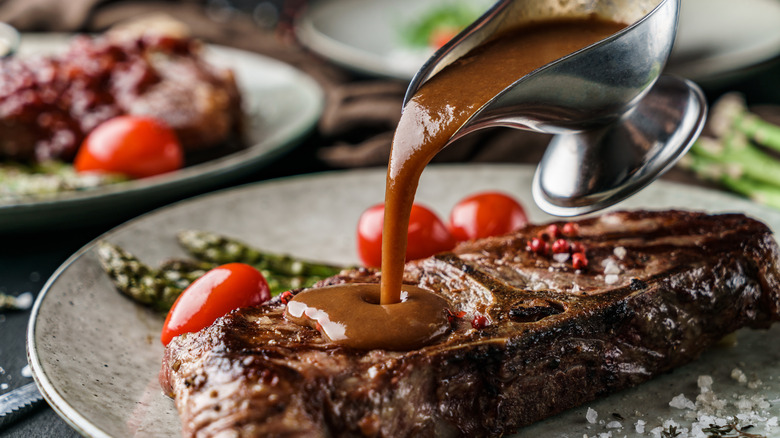The Tasting Mistake That Might Make It Impossible To Fix The Flavor Profile Of Your Sauce
A sauce can play many roles: It can be the building block of a complex dish, a fiery accompaniment to greasy foods, the star of a pasta dish or it could be the one element that ties a meal together. This is often why even a small mistake when making sauce can often make or break a dish. As with most kitchen mishaps, however, a great deal of sauce blunders can be fixed. But to do that, there's one tasting mistake that you should avoid — which is likely the secret to making incredible sauces.
If you're an ardent fan of reality cooking shows or frequently dine at open kitchen restaurants, you may have noticed a common trait most chefs share: They tend to taste the food as they cook. Cooking Light notes that tasting food through each stage of cooking can help you find flaws and prevent — or even fix — them before they become unfixable.
Tasting the sauce as you cook, for instance, can help you tweak things like the quantity of salt or chili according to your preferences or it can help you spot flaws in the sauce early on during the cooking process. After all, if you don't know what's wrong in the first place, how will you fix it?
You can fix most sauce problems as long as you taste it
Not tasting the sauce is perhaps one of the biggest mistakes you're making with homemade sauces. Cooking Light explains that all foods are built on a combination of five fundamental flavors: sweet, salty, bitter, sour, and umami. Once you taste the sauce as you cook it, spot what the problem is, and the flavor that's causing it, you can balance the flaw with another flavor.
If a sauce is too spicy for example, a dash of citrus or yogurt can offset the heat. If it's too rich — in which case, there's an excess of umami — you need something sweet like herbs or sour like vinegar to mellow it. Overly sweet sauces can be fixed by adding more sour, salty, or bitter flavors and bitter sauces can be mended with something sour, salty, or sweet.
More often than not, the problem is with the salt. Food & Wine suggests that adding small amounts of salt in batches, and tasting the dish as you add more, is pretty much the only way to avoid over-salting it. It further points out that the same food can taste different when eaten the next day and leftover sauces may need to be tasted and tweaked again before you use them.
According to Lifehacker, you should always use wooden spoons to taste hot food, including your sauces. Metal spoons when dipped in hot sauces can quickly burn your mouth and silicone spoons tend to be frustrating to work with when it comes to liquids.

